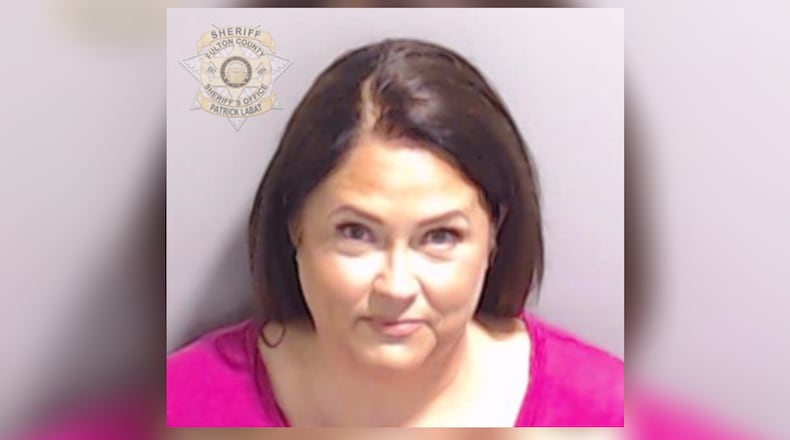The lawyer who acknowledged in court that he leaked video evidence to the news media is from South Georgia and represents one of the lesser known defendants in the Fulton County election interference case.
Jonathan Miller III, of Brunswick, is defending Misty Hampton, who was the elections supervisor in Coffee County during the January 2021 breach of voting machines there. She was present when a forensic data team hired by Trump allies copied sensitive voting files.
In remarks just after the racketeering indictment was announced in August, Miller responded by suggesting the charges were part of a shadowy conspiracy.
“This is a nationally concerted effort to intimidate and silence government whistleblowers and clerks when they react to witnessing election fraud, law violations, and/or vulnerabilities with the election system that contravenes the ‘big lie’ narrative adopted by mainstream media,” he told The Atlanta Journal-Constitution.
He also provided a link to a YouTube video of his client claiming to show how Dominion machines, like those in Georgia can be hacked.
While many of the defense attorneys involved in the Fulton County case come from giant firms in downtown high-rise buildings, Miller is a small-town lawyer. He spent eight years as an assistant district attorney before opening a private practice in 2013 following a failed bid in 2012 as a Republican candidate for district attorney.
As a private attorney, Miller advertises legal services ranging from wills and divorces to criminal defense. Miller’s first career was in banking before he made a mid-career swap to law, attending Florida Coastal School of Law, a private, for-profit law school that closed its doors in 2020 amid accreditation issues and a class action lawsuit filed by former students.
Miller’s admission to Fulton Superior Court Judge Scott McAfee on Wednesday came after a flurry of activity prompted by the video interviews going public. They showed former defendants Jenna Ellis, Sidney Powell, Kenneth Chesebro and Scott Hall being interviewed by Fulton prosecutors, part of the deal they struck before pleading guilty to reduced charges.
The release sparked rounds of finger pointing among lawyers for the remaining 15 defendants and the DA’s office. Prosecutors quickly sought an emergency protection order to keep such evidence from being released to the public saying it amounted to witness intimidation.
At a hearing Wednesday to consider that request, Miller said he was the source but argued he did nothing wrong. The material was not under a protective order when he shared it.
“In being transparent with the court, and to make sure that nobody else gets blamed for what happened, and so that I can go to sleep well tonight: Judge, I did release those videos to one outlet,” Miller said. “And with all candor to the court I need the court to know that.”
Miller said he believed that releasing the videos offered transparency into a process that he said has unfairly cast his client in a bad light.
That drew a rebuke from McAfee.
“It seems like having open files for everyone to start litigating the case before we actually get inside of a courtroom comes with a lot of side effects that I don’t know if we’ve thought through,” he said.
”Judge, I cannot argue with that logic,” Miller replied. ”There’s just not a lot of Georgia law on this particular issue.”
McAfee agreed.
“I’ll certainly grant you that. I think we’re a bit unmoored here in Georgia on this issue,” he said.
”
Keep Reading
The Latest
Featured





